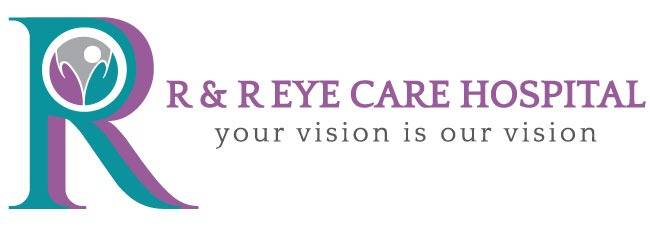Choosing the right eye care specialist for your family is a critical decision that impacts your overall eye health and well-being. At R & R Eye Care Hospital, we understand the importance of finding a trusted professional who can provide comprehensive and personalized care for every member of your family. Whether you need routine check-ups, treatment for specific eye conditions, or specialized care, selecting the right eye care specialist can make all the difference. Here’s a guide to help you make an informed decision.
1. Understand the Different Types of Eye Care Specialists
Before you start your search, it’s essential to understand the various types of eye care specialists:
- Optometrist: Optometrists are eye care professionals who perform eye exams, prescribe corrective lenses, and diagnose and treat certain eye conditions. They can also provide pre- and post-operative care for eye surgeries but do not perform the surgeries themselves.
- Ophthalmologist: Ophthalmologists are medical doctors (MDs) or doctors of osteopathy (DOs) who specialize in eye and vision care. They are qualified to perform eye surgeries, treat complex eye conditions, and provide comprehensive eye care, including routine exams and prescription lenses.
- Optician: Opticians are technicians who design, fit, and dispense eyeglasses and contact lenses based on the prescriptions provided by optometrists or ophthalmologists. They are not involved in diagnosing or treating eye conditions.
Understanding these distinctions will help you choose the right specialist based on your family’s specific needs.
2. Consider Your Family’s Eye Care Needs
Different family members may have varying eye care needs. For instance, children may require specialized pediatric eye care, while older adults might need treatment for age-related conditions such as cataracts or glaucoma. Consider the following:
- Routine Eye Exams: If your primary need is regular eye exams and vision correction, an optometrist may be sufficient.
- Surgery and Treatment of Complex Conditions: For surgeries or treatment of complex eye conditions, an ophthalmologist is the best choice.
- Specialized Care: If anyone in your family has specific needs, such as pediatric eye care, diabetic eye care, or treatment for eye injuries, you may need a specialist with expertise in those areas.
3. Research Credentials and Experience
Once you know what type of specialist you need, research the credentials and experience of potential candidates. Look for the following:
- Board Certification: Ensure that the specialist is board-certified, which means they have undergone rigorous training and have passed comprehensive exams in their field.
- Experience: Consider the specialist’s experience, particularly in treating the specific conditions or performing the procedures your family may need. Experienced professionals are more likely to provide high-quality care.
- Reputation: Look for reviews and testimonials from other patients. Positive feedback from others can give you confidence in the specialist’s ability to provide excellent care.
4. Evaluate the Range of Services Offered
When choosing an eye care specialist, it’s essential to consider the range of services they offer. A comprehensive eye care provider, like R & R Eye Care Hospital, can meet the diverse needs of your entire family under one roof. Services to look for include:
- Comprehensive Eye Exams: Regular check-ups for vision and eye health.
- Pediatric Eye Care: Specialized care for children’s unique eye care needs.
- Treatment of Eye Conditions: Management and treatment of conditions like glaucoma, cataracts, diabetic retinopathy, and macular degeneration.
- Surgical Services: Access to advanced surgical treatments such as LASIK, cataract surgery, and other eye surgeries.
- Optical Services: A wide selection of eyeglasses, contact lenses, and other vision correction options.
5. Consider the Location and Accessibility
Convenience is an important factor when choosing an eye care specialist, especially if you have a busy schedule or require frequent visits. Consider the following:
- Location: Choose a specialist whose office is conveniently located near your home, work, or children’s school.
- Office Hours: Ensure that the office hours align with your family’s schedule. Some practices offer evening or weekend appointments, which can be a significant advantage.
- Accessibility: If any family member has mobility issues, check that the facility is accessible and offers necessary accommodations.
6. Assess the Technology and Facilities
Advanced technology and modern facilities can enhance the quality of care you receive. At R & R Eye Care Hospital, we pride ourselves on using state-of-the-art equipment and the latest techniques to diagnose and treat eye conditions. When evaluating potential eye care specialists, consider the following:
- Diagnostic Equipment: Modern diagnostic tools, such as optical coherence tomography (OCT) and corneal topography, can provide more accurate assessments of your eye health.
- Surgical Technology: If you need surgical treatment, inquire about the technology used for procedures like LASIK, cataract surgery, or glaucoma treatment. Advanced technology can lead to better outcomes and faster recovery.
- Comfort and Cleanliness: The overall environment of the office should be clean, comfortable, and welcoming. A well-maintained facility reflects the care and professionalism of the practice.
7. Evaluate Communication and Patient Care
The relationship between you and your eye care specialist is crucial. You should feel comfortable discussing your concerns and confident in their ability to provide personalized care. Consider the following:
- Communication Style: Choose a specialist who listens to your concerns, explains treatment options clearly, and answers your questions thoroughly.
- Patient-Centered Care: Look for a practice that prioritizes patient care, with friendly staff, short wait times, and a focus on making your experience as comfortable as possible.
- Follow-Up Care: Ensure that the specialist provides adequate follow-up care, particularly after surgical procedures or treatments for chronic conditions.
8. Check Insurance and Payment Options
Eye care can be expensive, especially if you require specialized treatments or surgeries. It’s important to check whether the specialist accepts your insurance and to understand the payment options available. Consider the following:
- Insurance Coverage: Verify that the eye care specialist is in-network with your insurance provider. This can significantly reduce your out-of-pocket costs.
- Payment Plans: If you don’t have insurance or need to cover additional expenses, inquire about payment plans or financing options.
- Transparent Pricing: Look for a practice that provides clear and transparent pricing for services. You should know what to expect in terms of costs before undergoing any procedures.
9. Trust Your Instincts
Finally, trust your instincts when choosing an eye care specialist for your family. You should feel confident in your choice and comfortable with the care provided. If something doesn’t feel right or if you’re unsure, don’t hesitate to seek a second opinion or explore other options.
Conclusion: Making the Right Choice for Your Family’s Eye Health
Choosing the right eye care specialist is a significant decision that can have a lasting impact on your family’s eye health. At R & R Eye Care Hospital, we are committed to providing comprehensive, compassionate, and personalized eye care for every member of your family. Our team of experienced specialists is here to help you achieve and maintain optimal eye health. Contact us today to schedule an appointment and experience the difference quality eye care can make.




Leave A Comment